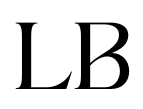Explaining the Meaning of Twe Twe Remix Lyrics by Kizz Daniel ft Davido – An Afrobeat Masterpiece?
Introduction
Kizz Daniel’s remix of “Twe Twe” is an anthem that blends celebration and contemporary African life. This song, featuring Davido, contains cultural references, social commentary, and dance beats. The lyrics are interpreted below to reveal more meaning and thematic underpinnings of the song.
Interpretation:
Verse 1: Kizz Daniel –
Vado: Kizz Daniel’s stage identity is confirmed, setting the stage for personal storytelling.
“Won ni things ti won“: The line “they said things are expensive” refers to the cost of living, or the price of desirable items, which is a problem in many societies.
“Won ni omo won“: “They said babes are scarce” could be a commentary on dating or finding a mate in the current social climate.
“Won ni car ti won“: “They said cars are expensive” further highlights economic woes, and the prestige and status of owning a car in particular.
“Ka shey akojo“: “Have savings” implies prudence in finances and the need for financial planning and security in times of economic uncertainty.
“Mallam na Mallam“: “A rich man is a rich man” adds a whiff of inevitableness about money and status.
“Alhamdulilahi owo mi po dada“: “Thank God my money is enough” contrasts the earlier lines, expressing personal gratitude for financial abundance in the face of economic troubles.
“Yen Yen Yen“: Rejecting trivial complaints, this line emphasizes the good things in life.
“Omoge wawo Ghost“: An invitation to luxury, with a woman joining the singer in a Rolls Royce Ghost, symbolizing wealth and high life.
“Sare wa kin toast“: “Come, let me toast you” suggests romantic or flirtatious engagement, showing confidence and social engagement.
“Mo ti pa owo sporty“: “I got money from sporty” hints at a source of the speaker’s wealth – success in betting or gambling – which adds to his character.
“Pelu zero shorty“: “I have no shorties right now,” suggesting a moment alone or a break from romantic entanglement, possibly indicating a focus on personal success or a transition in personal relationships.
“Mo ti mu one, I’m on two“: “I’ve taken one, I’m on two,” possibly in reference to drinks, levels of achievement, or experiences.
“Moni ko lomu round three wa“: “I say bring the third round,” implying indulgence and willingness to try more – be it drinks, challenges, or experiences.
“Shedi bembelebe“: A silly, nonsensical phrase that gives the song a jolly and carefree feel.
“Big Vado”: Kizz Daniel ends the verse on a note of self-assuredness and prominence.
Chorus:
The chorus, with its repetitive “Twe twe” and “Twerk your body,” celebrates dance and movement. It’s an invitation to jive, to have a good time, and also to take part in the audio and dance of the band.
Verse 2: Davido –
Isakaba (Baddest): In Nigerian pop culture, “Isakaba” means power and might; in Davido’s own words, “Baddest” means confidence and control.
“Give me your bakasi“: “Bakasi” is slang for a woman’s backside.
“Your body looking like tsunami“: “Tsunami” as a metaphor for great beauty or impact.
“Explosive Hiroshima Nagasaki“: A term for the cities bombed in WWII, used here as a hyperbole for destructive beauty or a strong impact.
“Many omoge don make me miscalculate“: “Many women have made me miscalculate,” perhaps referring to distractions or the challenges of romantic interactions.
“Don make me over debe“: “Have taken me over my limit,” maybe with spending, partying, or romance.
“Don make me dey misbehave“: “Have made me behave improperly,” possibly due to attraction or the party atmosphere.
“With the way they Twe Twe Twe Twe“: To emphasize the effect of the twerking.
“Fit to make a man go Keke Na Pe Pe Pe“: “Can make a man go crazy,” “Keke Na Pe Pe” being a tricycle that suggests the dance can make a person lose control.
“Egbami o Jesu“: A Yoruba exclamation meaning “Save me, oh Jesus!” Sometimes used as a sign of shock or awe, perhaps at the attraction or situation he is in.
“They be feeling the boy like oleku“: “Oleku” is a popular song by Ice Prince, and the term itself suggests something fashionable or outstanding. Davido here implies that he is beloved or sought after, likening his appeal to a hit song or trend.
“Osondi owendi o di o di o di o“: This line is from a traditional Igbo highlife song by Chief Stephen Osita Osadebe and means joy, celebration, and pride. The phrase may be viewed as an invitation to dance and take pleasure in life.
“Oya see how her body Twe Twe Twe Twe“: An invitation to see how a woman dances, where “Twe Twe” represents the sound or rhythm of her movements.
“Twerk your body Twe Twe baby, Twerk your body Twe Twe, Omoge Twerk your body oh“: These lines continue the song’s general theme of dance – specifically twerking – as an expression and enjoyment. Davido encourages the woman to dance freely, highlighting her movements.
“On a low, on a low“: This phrase may mean to keep things secret or to enjoy the moment without attracting too much attention, thus making the interaction more intimate or subtle.
Overview and Opinion
The remix of “Twe Twe” by Kizz Daniel brings the full breadth of Davido’s verse to life with cultural homage, personal allure, and danceability. Davido combines traditional references with contemporary slang, demonstrating the interplay of modern African music with its cultural heritage. The song, with its bouncy beats and relatable lyrics, invites listeners to the dance floor and provides a sampling of expressions reflecting African youth culture. The collaboration of Kizz Daniel and Davido elevates the track to a rousing anthem that speaks of celebration, resilience, and the universal human bond through music.








